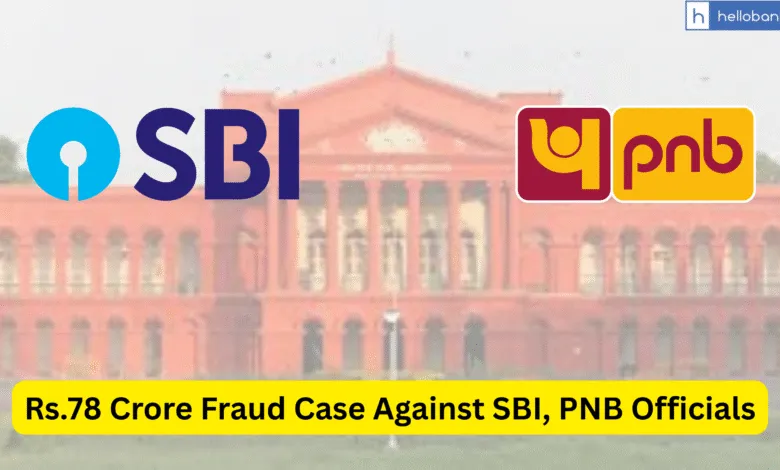Karnataka High Court Refuses to Quash Rs.78 Crore Fraud Case Against SBI, PNB Officials

The Karnataka High Court has refused to quash a chargesheet filed by the Criminal Investigation Department (CID) against senior officials of State Bank of India (SBI), Punjab National Bank (PNB), and other accused in a fraud case involving more than ₹78 crore.
The case was initiated in 2015 when Prashanth Hegde, Managing Director of Metal Closures, a company engaged in manufacturing packaging materials, filed a complaint. Hegde alleged that some of his own company officials, along with bank executives, were involved in a series of fraudulent activities that pushed his firm into crisis.
According to the complaint, he made several serious allegations against his company executives and the senior officials of SBI and PNB. He said that the fraudulent acts included:
- Forging the signature of the company’s managing director.
- Removing goods from company premises without consent.
- Disconnecting the company’s essential LPG connection.
- Misappropriation of funds, including an allegation that a PNB executive diverted ₹6.2 crore to shell companies linked to his son.
A Forensic Science Laboratory (FSL) report later confirmed the signatures were indeed forged. The prosecution argued that these forged documents were accepted by the bank officials to facilitate the wrongful transfer of substantial funds, causing significant loss to the company.
Hegde further stated that by the end of 2013, his company was facing capital issues, and soon after, its accounts were declared as Non-Performing Assets (NPA). However, he pointed out that between 2013 and 2014, the company had repaid over ₹100 crore to the banks, which contradicted the claim that the firm was financially incapable of repayment.
Role of Banks and Consortium Funding
The company had been funded by a consortium of banks led by SBI, along with PNB, Corporation Bank, and UCO Bank. Hegde alleged that even after being informed of frauds by his CFO, deputy CFO, and some bank executives, the bankers chose to act against the company instead of investigating the fraud. He claimed that the banks tried to shut down the firm using provisions of the SARFAESI Act (Securitisation and Reconstruction of Financial Assets and Enforcement of Securities Interest Act).
Following the CID’s chargesheet, several accused, including bank officials, approached the Karnataka High Court seeking to quash the case. They argued that there was no basis for the allegations and questioned the CID’s investigation. However, on July 23, Justice M G Uma rejected their pleas. The court made several strong observations:
- The company’s accounts being declared NPA was questionable, since records showed repayments of more than ₹100 crore during 2013–14.
- The banks had not explained why they failed to declare the account NPA earlier if the company’s financial condition was indeed weak.
- The CID’s chargesheet was supported by documents, witnesses, and extensive investigation, making it improper to dismiss the case at this stage.
The judge stated that it was not the time for a “mini-trial” to weigh each argument made by the accused. Instead, the matter should proceed to a full trial, where both prosecution and defense would have the opportunity to present their evidence.
With these observations, the High Court dismissed the petitions of the accused and upheld the CID’s chargesheet. This means the fraud case, involving senior bank officials and others, will now move forward in the trial process.
The order has drawn attention to the role of banks in handling corporate fraud cases, particularly questions about how and why accounts are declared NPAs and whether due process is always followed.
Download Court Order PDF (This PDF is available for Premium Users Only. Click here to join premium)
